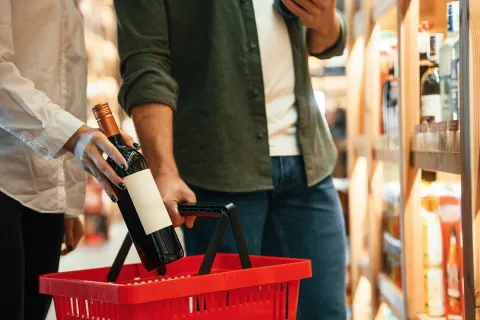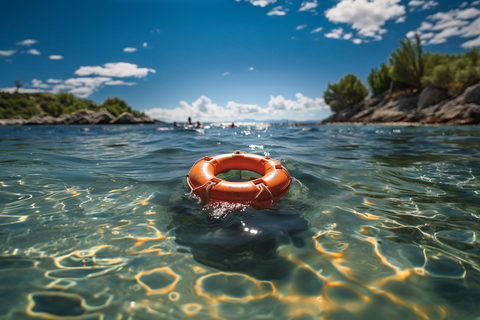Alcohol
Covid-19
Stopping Drinking
Recovery
Drinking danger may outweigh quit risk during Covid-19 pandemic

by Christine Humphreys
Published: June 16, 2020 Last updated: December 24, 2023

A DIY detox guide has been issued to address fears over heavy drinkers going cold turkey during lockdown.
A government decision to deem off-licences essential during the Covid-19 pandemic prompted public debate over the danger of dependent drinkers dying without access to alcohol.
Addiction experts have now published step-by-step instructions to encourage those wanting to quit to do so safely in the absence of NHS alcohol support services.
The Scottish Health Action on Alcohol Problems (SHAAP), a lobby group made up of medical professionals, has drawn up the guide which they hope will help those with unhealthy drinking habits ditch the booze.
Their guide has been published after recognition that inpatient and home detox services, where community nurses visit patients to monitor progress, had been stripped back or suspended.
Staff working in alcohol services were being redeployed to cope with increased pressure on the NHS and, due to social distancing, house visits and other face-to-face care for alcohol abusers was no longer available.
Drinkers deterred from quitting
They were worried that warnings of the health risks of quitting would deter dependent drinkers from trying to stop and lead to more dying from alcohol-related disease.
Dr Peter Rice, a psychiatrist who chairs the SHAAP steering group, and has spent his career in alcohol treatment services, hopes the guide will have a positive impact on reducing harmful consumption.
“The first thing that struck us was that there were a lot of people just kind of being left without a service.
“The second thing that was happening was partly stirred up by off-sales outlets being designated as essential.
“Now my own view is it actually didn’t make very much difference. The supermarkets, who are the big sellers, were already selling it anyway and the stand alone off-licences affected by the designation made a small contribution to overall consumption.
“So that designation of essential, although there was a symbolic significance, I think in practice it didn’t make much of a difference – but it did get people thinking.
“And so we started to see on social media people saying, ‘Well, it’s a good thing alcohol’s essential because if people don’t get their alcohol, they could die’.
“That actually seemed to be one of the predominant bits of thinking, ‘Well, it’s terribly dangerous to stop drinking’.”
Dr Rice says the perception overestimated drinkers’ ability to stabilise their consumption and underestimated the risks of continued drinking and cited a hospital study that illustrates his concern.
“There was a study in the Royal Infirmary in Glasgow looking at people who came into A&E with withdrawal symptoms. The study found that 17%, that’s 1 in 6 people, died within the next year,” he explained.
“So I think the problem with the kind of, ‘Just keep drinking until help arrives’, approach was that it underestimated the risks that, even if people could achieve stability, they would still be dying of liver disease and of infectious diseases due to lowered immunity which were the commonest causes of these deaths.
“So all in all, I think there was a feeling that we wanted to steer people away from thinking it was low risk to just keep drinking and steer them towards making a change, to cutting back or quitting.”
How much is too much to DIY quit?
According to guidance from the health service advisory board NICE, anyone drinking over 30 units of alcohol a day should undergo detox in a supervised setting, such as hospital, and anyone drinking more than 15 units a day should be offered community support, such as a supervised home detoxification.
Dr Rice says the NICE guidelines describe best practice and the treatment system would ideally be providing this level of help, but the reality is that alcohol services don’t meet the need in the population and the COVID crisis has worsened this.
He added: “Self-managed detox is possible and many people do this. However, repeated detoxes can be harmful so it is important, if people decide to detox, that they prepare the ground to try to avoid relapse.”
Rather than focus on only those drinking more than 15 units a day – the equivalent of about one and a half bottles of wine – he hopes the guidance will tackle problem drinking at all levels.
“We really wanted to have people self-define, so we published it as guidance for heavy drinkers in the hope that people would then look at that and say, ‘Yeah, that’s me’.
“If you think you’re a heavy drinker, you probably are. If you’re drinking over 15 units, you’re pretty likely to get withdrawal symptoms. And if you’re drinking over 30 units, you really need to be careful.
“Our message is; even if you drink over 30 units, you can make a positive change. If you get yourself organised, do some planning, use the supports around you, you can do this.”

About The Author
Christine Humphreys
Chris Humphreys is the co-founder of The Alcohol-Free Shop and AlcoholFree.com. She was a journalist for more years than she cares to remember. Ex-wife of an alcoholic, enthusiastic amateur musician and a passionate dog lover.
More News

Minimum alcohol price rise approved in Scotland
April 18, 2024

Almost three-million years lost to booze in six years
March 19, 2024

The doctor fighting to save lives by removing the stigma of 'alcoholism'
March 11, 2024

Celebrity eatery launches Alcohol-Free wine list
January 22, 2024

Petrolhead Clarkson raises a glass to Dry January
January 04, 2024

Real ale campaigners embrace alcohol free beer
December 13, 2023

Alcohol duty rise ‘will save lives’
August 02, 2023

Alcohol-Free wine could be elixir of youth
July 25, 2023